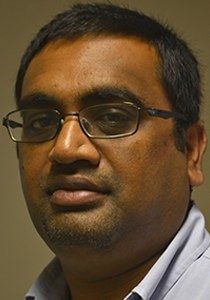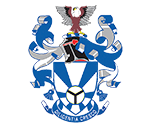
Position: Senior Professor
Phone: 035 902 6152
Email: RevaprasaduN@unizulu.ac.za
Building &Room: Department of Chemistry, Natural Science Building, KwaDlangezwa Campus
Biography:
Neerish Revaprasadu is Senior Professor of Chemistry and former SARChI Chair holder in Nanotechnology at the University of Zululand, South Africa. He obtained my B,Sc(Hons.) from University of Natal in 1993 and Ph.D from Imperial College, London in 2000. He started as a Senior Lecturer at UNIZULLU in 2000 promoted to Associate Professor in 2004 and full Professor in 2009. In 2007 I was awarded the DST/NRF SARCHi research chair in Nanotechnology.
He has taught undergraduate and postgraduate courses. These include General Chemistry (1st year), Analytical Chemistry (2nd, 3rd and Hons), Inorganic Chemistry (3rd year and Hons.) and has supervised 15 postdocs, 20 Ph.D and 16 M.Sc students. Professor Revaprasadu has published 240 articles in peer reviewed journals, 25 book chapters and attended 80 national and international conferences.He has been the editor of the SPR Nanoscience book series(Vol. 4-7) published by the Royal Society of Chemistry since 2016 and also the associate editor of the Nanoscience and Nanotechnology RSC book series. He was elected Member of South African Academy of Science (ASSAF) in 2014.
Lecture ‘s the following modules:
3rd year Inorganic Chemistry and Advanced Inorganic Chemisty(Hons)
Qualifications:
BScHons (Natal), PhD (London), Dip (Imperial College
Professional membership:
ASSAF, RSC and SACI
Research interests:
Prof Neerish Revaprasadu is currently holding the NRF/DST SARChI Chair in Nanotechnology since Oct. 2007 up to date. The research focus of the chair is on developing routes for the delivery of high quality materials. Their initial work was on II-VI semiconductor materials such CdS, CdS, CdTe, PbS, PbTe and PbSe. “We developed a new route to selenium and tellurium based semiconductors. We are now focussed on earth abundant materials using metal complexes as single source precursors . The materials of interest are Bi, Fe, Ni, Co, Sb chalcogenides. We use AACVD and hot injection routes to prepare the binary and ternary materials. We have also started work on metal chalcogenide binary, ternary, 2-D and carbon nitride-metal chalcogenide (CN-MC) composite systems for application in energy generation and storage. In particular, the materials would be studied for their efficiency in the hydrogen evolution reaction (HER), oxygen evolution reaction (OER) and supercapacitance. The materials would be prepared via a melt method, which is easy to scale up”.
The current interest is on nickel sulfide and nickel phosphide system. These materials are prepared phase pure with the intention of energy applications.
Past project include the development of a Au-ZnTe core shell nanoparticle drug delivery system for cancer therapy. We have a patent on this work. The project also involves cytotoxicity studies of water soluble gold/semiconductor systems.
He is part of consortium funded by the Royal Society/DFID program. The collaboration is with KNUST (Ghana), University of Yaounde (Cameroon) and University of Manchester (UK).
